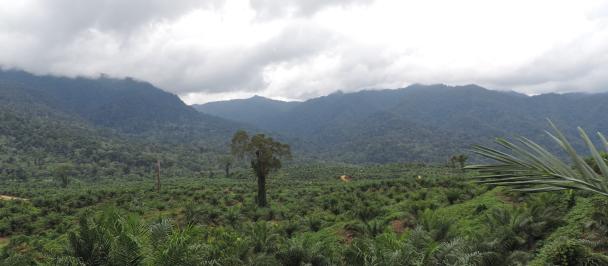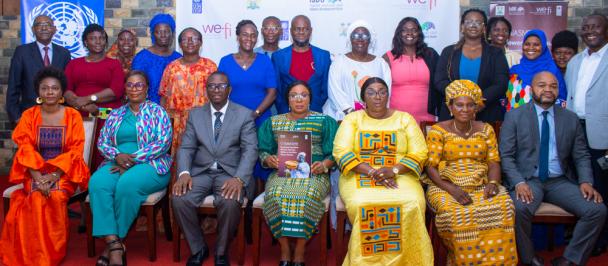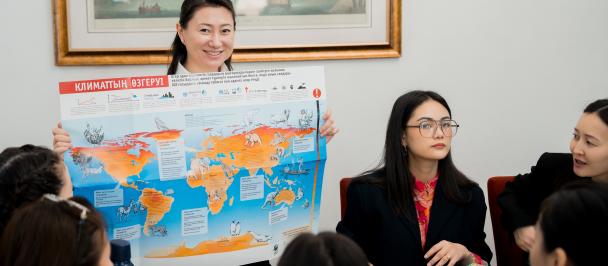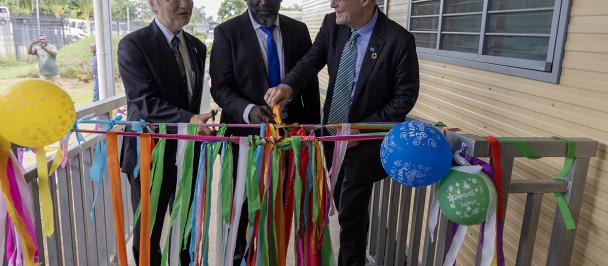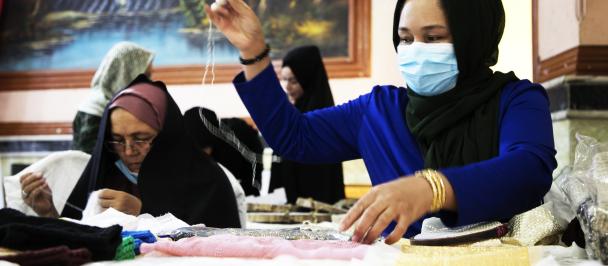UNDP signs a funding agreement of EUR 500,000 with France to Pilot a Community Violence Reduction (CVR) Approach project in Western Bahr El Ghazal.
October 11, 2022

UNDP Deputy Resident Representative Titus Osundina and the Ambassador of France to South Sudan Christian Bader at the signing event
Community Violence Reduction (CVR) aims to prevent and reduce violence at the community level in ongoing armed conflict or post-conflict environments. CVR has the same strategic objectives as DDR: to contribute to peace and security by supporting programmes that reduce armed violence, creating political space, and helping to build a secure environment conducive to recovery and development. CVR differs from conventional/classical DDR in that it works directly with target communities to find solutions to causes of armed violence from within and explicitly targets women associated with combatants and youth at risk of recruitment by armed groups in addition to ex-combatants. CVR utilizes a bottom-up approach, emphasizing community engagement. While the strategic direction of CVR is set from above, decisions related to participant and project selection, training and education options, and monitoring and evaluation are discussed and agreed upon with local communities.
CVR in South Sudan
In partnership with France, the United Nations Development Programme is collaborating with the South Sudan Disarmament, Demobilization and Reintegration Commission (DDRC) to pilot a 15-month CVR approach programme in the country - from October 2022 to December 2023. The pilot project aims to integrate former combatants, women associated with armed forces and groups (WAAFAG), armed youth and youth at risk to contribute to the productive and peaceful co-existence of conflict-affected communities in Western Bahr El Ghazal State. The project will also cover some counties of Northern Bahr El Ghazal and Warrap, where ex-combatants are returning.
Through the Community Violence Reduction (CVR) intervention approach, the project seeks to promote the rule of law, community security, social cohesion, and reconciliation; and integrate opportunities for livelihoods – agriculture, farming, and skills training for self-employment – among beneficiaries (former combatants, WAAFAG, armed youth, youth at risk as well communities of return). The project will also mobilize beneficiaries into cooperative associations and promote access to business startup kits and financial services, especially through cooperative savings and loan frameworks.
During the signing ceremony, the UNDP Deputy Resident Representative reassured UNDP commitment and support to the project. In his speech, He stated that,
“UNDP will work closely with other partners, local authorities, and communities to ensure the actualization of the project. We look forward to learning valuable lessons which will be applied in scaling up the project to other parts of the country.”
Delivering his remarks duing the signing ceremony, The French Ambassador Mr. Christian Bader said,
“We are glad to be on board this project with UNDP because they have expertise in DDR, as well as expertise in working with local communities, and that is where we want to be.”
Speaking on behalf of the DDRC, the Chair of the Commission General Ayuen Jongroor reiterated,
“This project is very important milestone for sustainable peace in South Sudan in the sense that it engages the whole community; that is the women associated with armed forces and groups (WAAFAG), armed youth and youth at risk and ex-combantatnts in trying to find solutions.”
UNDP will support national and state-level actors to foster peaceful co-existence in targeted areas, emphasizing socioeconomic re-integration, productivity, self-reliance, vocational training, inclusive economic activities, and micro-grant schemes targeting 250 former combatants and 250 community members. The project implementation will be led by the Disarmament, Demobilization, and Reintegration Commission (DDRC) with technical support from the UN Mission in South Sudan (UNMISS). Other relevant government counterparts, the Bureau for Community Security and Small Arms Control (BCSSAC), and partners, including civil society organizations, will also be engaged in its implementation.
Mamadou Toure, representing UNMISS, noted that the CVR represents the culmination of the ideal collaboration envisioned in their mandate and strategic vision of enhancing partnership.
“This CVR was developed in partnership with national authorities, notably through the leadership of the National DDR Commission and its implementation will be undertaken in close partnership with local communities” He stated.
The project will be piloted in the three counties of Western Bahr El-Ghazal State.

 Locations
Locations